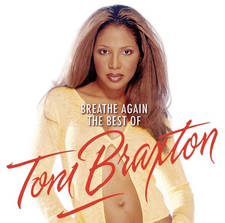Team Scotland In Rio 'Achievable'
There is "no obvious or major barrier'' to a Scottish team taking part in the 2016 Rio Olympics if the country votes for independence, according to a report.
A group chaired by former Labour first minister Henry McLeish found there were various practical measures which would have to be undertaken for Team Scotland to take part in the Olympics and Paralympics, but that they were "achievable''.
It urged the Scottish Government to have early talks with the International Olympic Committee (IOC) and International Paralympic Committee (IPC), in the event of independence, to demonstrate Scotland's "readiness to engage in the Olympic and Paralympic movement''.
The Working Group on Scottish Sport was appointed in September to examine the development of sport in an independent Scotland.
Over six months, the group considered a range of topics including the action required to ensure Scotland can be successful in future Olympics and Paralympics in its own right, and the steps required to ensure it remains a country of "sporting excellence''.
In a 53-page report, the group concluded: "Although the final decision on whether Scotland could compete at a future Olympic and Paralympic Games rests with the International Olympic Committee (IOC) and the International Paralympic Committee (IPC), upon reviewing the process, examining precedent and looking at our own state of readiness, the group concluded that there was no obvious or major barrier to securing Olympic and Paralympic accreditation for an independent Scotland in time to compete in Rio 2016.''
The report said Scotland has a "strong track record of competing successfully internationally'' and stated: ``There are a number of practical arrangements the Scottish Government would have to undertake in order to secure Olympic and Paralympic accreditation and the group have provided detailed recommendations on this, such as the establishment of a National Olympic Committee.
"Beyond the specific Olympic and Paralympic activity, there are a number of actions currently undertaken at a UK level that would need to be worked through in the event of Scotland becoming independent (such as developing an anti-doping structure and policy, developing a framework for coaching, developing capacity within Scottish Governing Bodies of sport etc).
"In the group's view, all of these are achievable with appropriate resources to support this.''
In the event of independence, athletes could choose whether they wanted to compete for Scotland or Great Britain, the report suggested.
It said: "The Olympic charter states that a '...competitor who is a national of two or more countries at the same time may represent either one of them, as he [or she] may elect'.
"Therefore for athletes living or born in Scotland, it would be possible for them to choose whether they wished to compete for Team Scotland or Team GB. The ability for athletes not born or living in Scotland to exercise this same choice will be dependent on whether dual nationality is available.''
Whilst there has been "considerable'' investment into sport, the report highlights that this has not resulted in more people being active.
"The group was of the strong view that in order to establish a lifelong habit of being active and ensure that everyone has the opportunity to be active from the cradle through to the grave, resources should be directed towards encouraging everyone to take part in sport and leading an active lifestyle,'' it said.
Mr McLeish said: "Scotland can be a sporting success. You don't need to be a large country to take on the world and we can do this as an independent nation or as part of the UK.
"We found no obvious barriers to Team Scotland participating in the Olympics and Paralympics, as soon as Rio, if this meets the IOC timetable.''
Sport Secretary Shona Robison said: "I welcome this independent report that shows Scotland will continue to be a sporting success on the world stage.''

